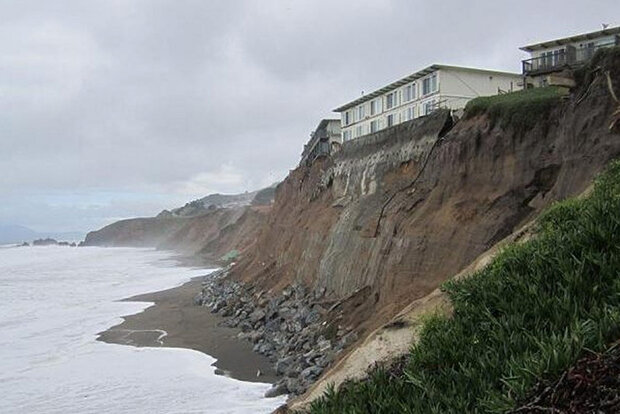Researchers achieve long-term predictions of coastal sea level rise using machine learning

Cliff erosion. Credit: Climate Resilience Toolkit

Cliff erosion. Credit: Climate Resilience Toolkit
As rising sea levels threaten coastal communities with increased flooding and erosion, predicting future changes is crucial for resilience. Researchers from Princeton University and NOAA’s Geophysical Fluid Dynamics Laboratory published a new study in npj Climate and Atmospheric Science using advanced machine learning techniques to analyze 5,000 years of model-simulated sea level changes in the North Atlantic. The work focused on patterns linked to shifts in ocean circulation, like the Atlantic Meridional Overturning Circulation (AMOC). The research team identified recurring sea level patterns to show that it’s possible to predict large-scale sea level patterns and even anticipate coastal variations up to 8 years in advance. The method could improve the accuracy and cost-efficiency of long-term predictions, offering a valuable tool for coastal planning and policy-making in an era of accelerating environmental change.